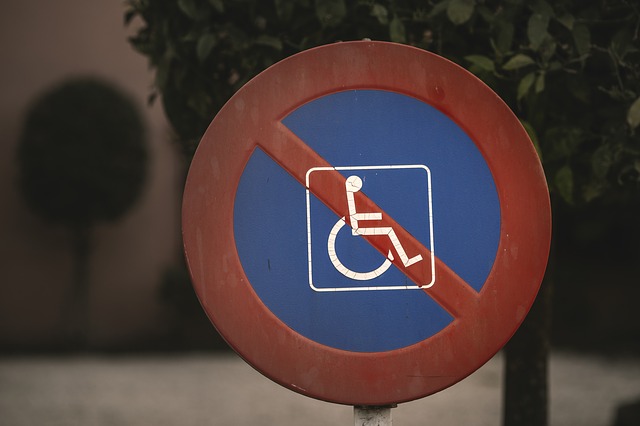Last Updated on July 17, 2024 by Alexander Sennuga
Is diabetic neuropathy a disability? is a question that many people living with this condition often ask. Diabetic neuropathy, a common complication of diabetes characterised by nerve damage due to high blood sugar levels, can significantly affect an individual’s daily life. From pain and numbness in the extremities to problems with the digestive system, urinary tract, and heart, the impact can be vast and varied.
This blog post delves into the subject, exploring the symptoms, impacts, and criteria that may qualify diabetic neuropathy as a disability, as well as the resources and support available for those navigating this condition.
Symptoms and Diagnosis of Diabetic Neuropathy
Diabetes can lead to a specific form of nerve damage known as diabetic neuropathy. It’s a condition that can affect different parts of your body, depending on the type of neuropathy you have. The symptoms of diabetic neuropathy can vary depending on the specific type and which nerves are affected.
Generally, symptoms can range from pain and numbness in your extremities to problems with your digestive system, urinary tract, heart, and blood vessels. In some people, these symptoms improve over time, while in others, they may worsen.
Common symptoms of peripheral neuropathy, the most common type of diabetic neuropathy that affects the feet and hands, can include:
- Diminished sensation or an increased difficulty in perceiving pain or variations in temperature, particularly noticeable in the feet and toes.
- A tingling or burning sensation
- Sharp pains or cramps
- Increased sensitivity to touch
On the other hand, autonomic neuropathy, which affects the nerves that control the heart, bladder, stomach, intestines, sex organs, and eyes, can cause:
Alterations in gastrointestinal processes, as well as shifts in bowel and bladder functionality.
How Diabetic Neuropathy Impacts Daily Life
Living with diabetic neuropathy can have a significant impact on a person’s daily life. The condition often leads to changes in a person’s physical health, emotional well-being, and overall quality of life.
One of the most common ways diabetic neuropathy affects daily life is through physical discomfort and pain. The constant numbness, tingling, or burning sensation in the extremities can make simple tasks such as walking, holding objects, or even dressing oneself challenging. This can lead to a decline in physical activity and, in severe cases, mobility issues.
Furthermore, the pain and discomfort can disrupt sleep, leading to fatigue and a lack of energy during the day. This can affect a person’s ability to work, engage in social activities, and carry out daily tasks.
Autonomic neuropathy can also have a significant impact. Changes in digestion, bowel, and bladder function can lead to incontinence, constipation, or diarrhoea, causing embarrassment and further limiting social activities.
Emotionally, living with diabetic neuropathy can be challenging. The constant pain and discomfort, combined with the limitations it imposes, can lead to feelings of bad health.
Is diabetic neuropathy a disability?
The question “Is diabetic neuropathy a disability?” is one that many people living with this condition often ask. It’s a crucial question, as being classified as a disability can open up access to certain services, support, and legal protections.
The answer to this question is not straightforward, as it can depend on various factors, including the severity of the condition, the impact on a person’s ability to perform daily tasks, and the legal definition of disability in a particular jurisdiction.
However, in many cases, diabetic neuropathy can indeed be considered a disability. This is particularly true when the condition is severe enough to significantly limit a person’s ability to perform basic activities, such as walking, standing for extended periods, or using their hands.
Moreover, the pain and discomfort caused by diabetic neuropathy can also interfere with a person’s ability to work, especially in jobs that require physical exertion or fine motor skills. This can further support the classification of diabetic neuropathy as a disability.
It’s important to note that each case is unique, and whether or not diabetic neuropathy is considered a disability can vary from person to person. It ultimately depends on the extent to which the condition affects a person’s daily life and ability to work.
In the United States, for example, the Social Security Administration (SSA) provides disability benefits to people who are unable to work due to a medical condition. The SSA has specific criteria for each condition, and for diabetic neuropathy to be considered a disability, the symptoms must be severe and long-term.
For those living with diabetic neuropathy, it is recommended to consult with a healthcare provider or a legal expert to understand whether their condition can be classified as a disability. This can help them access the support and resources they may need to manage their condition effectively.
While diabetic neuropathy can indeed be debilitating and significantly impact a person’s life, whether it is considered a disability will depend on various factors. It’s essential for individuals living with this condition to seek professional advice to understand their rights and the support available to them.
Legal Definition of Disability
Understanding the legal definition of disability is crucial when considering whether a condition like diabetic neuropathy could be classified as such. The definition can vary depending on the context and jurisdiction, but generally, it refers to a physical or mental condition that significantly limits one or more major life activities.
Within the United States, the Americans with Disabilities Act (ADA) characterizes an individual with a disability as someone who:
– Experiences a physical or mental impairment significantly constraining one or more essential life activities,
– Has a history or record of such an impairment, or
– Is recognised by others as possessing an impairment of this nature.
Major life activities include but are not limited to, activities like walking, talking, seeing, hearing, learning, working, and performing manual tasks. So, if diabetic neuropathy significantly impacts these activities, it could potentially be considered a disability under the ADA.
In the context of Social Security Disability benefits, the Social Security Administration defines disability as the inability to engage in any substantial gainful activity due to a medically determinable physical or mental impairment(s) that is expected to result in death or that has lasted or can be expected to last for a continuous period of not less than 12 months. This means that for a condition like diabetic neuropathy to be considered a disability, it must be severe enough to prevent a person from working and earning a living, and it must be expected to last at least a year or result in death.
It’s important to note that the legal definition of disability can vary from country to country. In the UK, for example, the Equality Act defines a person as disabled if they have a physical or mental impairment that has a substantial and long-term adverse effect, such that they are unable to carry out their normal day-to-day activities.
Regardless of the specific legal definition, it’s crucial for individuals with diabetic neuropathy to consult with a healthcare provider or legal expert to understand whether their condition could be classified as a disability. This can help them access the necessary support and resources they may need to manage their condition effectively.
The legal definition of disability often centers around the impact a condition has on a person’s ability to perform major life activities or maintain gainful employment. As such, severe cases of diabetic neuropathy could potentially meet these criteria.
How Diabetic Neuropathy Qualifies as a Disability
As we’ve established, whether or not diabetic neuropathy qualifies as a disability can depend on several factors, including the severity of the condition, the impact on a person’s daily life and ability to work, and the specific legal definition of disability in a particular jurisdiction.
However, there are certain conditions under which diabetic neuropathy is likely to be considered a disability.
For instance, if the neuropathy is severe enough to significantly impair a person’s ability to walk, stand for extended periods, or use their hands, it could be considered a disability under the Americans with Disabilities Act (ADA).
Similarly, if the pain and discomfort caused by diabetic neuropathy are so severe that they interfere with a person’s ability to work, especially in jobs that require physical exertion or fine motor skills, the condition could potentially qualify as a disability under the Social Security Administration’s criteria.
In the context of Social Security Disability benefits, the SSA has a specific listing for peripheral neuropathies (which includes diabetic neuropathy) in its “Blue Book” of disabilities. To qualify, a person must have a significant and continual lack of coordination in motor function across two extremities, leading to a prolonged disruption in both large and fine-scale movements, as well as in gait and posture.
Furthermore, if the neuropathy has led to other health complications, such as kidney disease, heart disease, or vision problems, this could also support the classification of the condition as a disability.
It’s important to note that the process of qualifying for disability benefits can be complex and may require extensive medical documentation. Therefore, individuals with diabetic neuropathy who believe they may qualify for disability status should consult with a healthcare provider or legal expert.
While not every case of diabetic neuropathy will qualify as a disability, those that significantly impact a person’s ability to perform major life activities or work could potentially meet the criteria. It’s crucial for individuals living with this condition to understand their rights and the support available to them.
Disability Benefits for Diabetic Neuropathy
If diabetic neuropathy qualifies as a disability under the legal definition in your jurisdiction, you may be eligible for disability benefits. These benefits are designed to provide financial support to individuals who are unable to work due to their disability.
In the United States, the Social Security Administration (SSA) provides two types of disability benefits: Social Security Disability Insurance (SSDI) and Supplemental Security Income (SSI).
SSDI is based on your work history and the amount of Social Security taxes you’ve paid, while SSI is a needs-based program for individuals with little to no income or resources. Both programs can provide monthly cash benefits to individuals who meet the SSA’s definition of disability.
To apply for these benefits, you’ll need to provide detailed medical documentation showing that your diabetic neuropathy meets the SSA’s criteria for disability. This may include medical records, lab results, and a statement from your doctor detailing your symptoms and how they impact your ability to work.
It’s worth noting that the process to qualify for disability benefits can be lengthy and complex.
How to Apply for Disability Benefits with Diabetic Neuropathy

If you’re living with diabetic neuropathy and it’s impacting your ability to work or perform daily activities, you may be eligible for disability benefits. Here’s a step-by-step guide on how to apply for disability benefits with diabetic neuropathy.
- **Understand the Criteria**: The first step is to understand the criteria for disability benefits in your jurisdiction. As discussed earlier, the Social Security Administration (SSA) in the United States has specific criteria for each condition.
- **Gather Your Medical Records**: You’ll need to provide detailed medical documentation showing that your diabetic neuropathy meets the SSA’s criteria for disability. This may include medical records, lab results, and a statement from your doctor detailing your symptoms and how they impact your ability to work.
- **Complete the Application**: The application for disability benefits can usually be completed online, by phone, or in person at a local Social Security office. The application will ask for information about your medical condition, work history, and financial resources.
- **Submit Your Application**: Once you’ve completed the application and gathered all the necessary documentation, you cansubmit your application. It’s important to submit your application as soon as possible, as the process can take several months.
- **Wait for a Decision**: After you submit your application, it will be reviewed by the SSA. They may also ask you to undergo a medical examination or tests. The decision-making process can take several months, so it’s important to be patient.
- Consider an Appeal. In the event of a denial, don’t despair. Many initial applications are denied, but you have the right to appeal the decision. You may want to consider getting legal help for the appeal process.
Applying for disability benefits can be a complex process, but it’s an important step for many people living with diabetic neuropathy. The benefits can provide much-needed financial support and access to other resources to help manage the condition.
Remember, each case is unique, and the process and requirements may vary depending on your specific situation and jurisdiction. It’s always a good idea to seek the assistance of a healthcare provider or legal expert to guide you through the process.
Applying for disability benefits with diabetic neuropathy involves understanding the criteria, gathering the necessary medical documentation, completing and submitting the application, waiting for a decision, and potentially appealing if the initial application is denied. While the process can be complex and lengthy, the benefits can provide crucial support for individuals living with this debilitating condition.
Challenges in Qualifying Diabetic Neuropathy as a Disability
While diabetic neuropathy can significantly impact a person’s life and ability to work, qualifying it as a disability can sometimes be challenging. There are several reasons for this.
**Severity and Impact of Symptoms**: The severity and impact of diabetic neuropathy symptoms can vary greatly from person to person. Some people may experience mild symptoms that, while uncomfortable, do not significantly interfere with their daily life or ability to work. Others may experience severe symptoms that greatly impact their ability to perform basic tasks or maintain employment. This variability can make it challenging to classify diabetic neuropathy as a disability.
**Medical Documentation**: To qualify for disability benefits, you must provide detailed medical documentation that clearly shows how your diabetic neuropathy meets the specific criteria set by the Social Security Administration or other relevant agency. Gathering this documentation can be a complex and time-consuming process.
**Understanding the Criteria**: The criteria for disability benefits can be complex and difficult to understand. This can make it challenging for individuals with diabetic neuropathy to determine whether they qualify for benefits.
**Navigating the Application Process**: The process of applying for disability benefits can be lengthy and complex. It requires completing detailed forms, gathering and submitting medical documentation, and potentially attending a medical examination or hearing. This can be a daunting task, especially for someone dealing with a debilitating condition like diabetic neuropathy.
**Denials and Appeals**: Many initial applications for disability benefits are denied, often due to lack of medical evidence or other technicalities. If your application is denied, you have the right to appeal, but this can add additional time and complexity to the process.
Despite these challenges, it’s important to remember that support is available. Healthcare providers, social workers, and legal experts can provide guidance and assistance throughout the process.
While qualifying diabetic neuropathy as a disability can be challenging due to the variability of symptoms, the complexity of the criteria and application process, and the potential for initial denials, it’s crucial for individuals living with this condition to seek the support and resources they need.
Case Studies: People Living with Diabetic Neuropathy as a Disability

To fully understand the impact of diabetic neuropathy and how it can qualify as a disability, it can be helpful to look at real-life case studies. These stories can provide insight into the challenges and triumphs of living with this condition.
Case Study 1: John’s Journey
John, a 55-year-old former construction worker, has been living with diabetic neuropathy for the past ten years. The pain and numbness in his feet became so severe that he was unable to continue his physically demanding job. After consulting with his doctor and a legal expert, John applied for Social Security Disability benefits. Despite an initial denial, he successfully appealed the decision and now receives monthly benefits that help him manage his condition.
Case Study 2: Maria’s Story
Maria, a 45-year-old office worker, started experiencing symptoms of diabetic neuropathy, including tingling and weakness in her hands. This significantly impacted her ability to perform her job, which involved a lot of typing. After her doctor diagnosed her with diabetic neuropathy, she applied for disability benefits. With the help of a
disability attorney, Maria was able to provide the necessary medical documentation and successfully qualify for disability benefits under the Social Security Administration’s criteria.
Case Study 3: Ahmed’s Experience
Ahmed, a 60-year-old taxi driver, has been living with diabetic neuropathy for several years. The condition has affected his ability to drive, leading to a loss of income. After struggling to manage his symptoms and financial situation, Ahmed applied for disability benefits. Although the process was challenging and took several months, he was eventually approved for benefits, which provided much-needed financial support.
These case studies highlight the significant impact diabetic neuropathy can have on a person’s life and ability to work. They also demonstrate that, despite the challenges, individuals with this condition can qualify for disability benefits with the right support and resources.
Living with diabetic neuropathy as a disability can be challenging, but there are resources and support available. It’s crucial for individuals living with this condition to seek professional advice and take proactive steps to manage their condition effectively.
Expert Opinions on Diabetic Neuropathy as a Disability
When discussing diabetic neuropathy as a disability, it’s beneficial to consider expert opinions. Medical professionals, disability advocates, and legal experts can provide valuable insights into this issue.
Medical Professionals: Doctors and other healthcare providers who specialise in diabetes and neuropathy often emphasise the significant impact this condition can have on a person’s life. They highlight that severe cases of diabetic neuropathy can lead to significant physical limitations, impacting a person’s ability to perform daily tasks or maintain employment.
Disability Advocates: Advocates for people with disabilities often stress the importance of recognizing conditions like diabetic neuropathy as disabilities. They argue that doing so can open up access to necessary support and resources, helping individuals manage their condition and maintain a good quality of life.
Legal Experts: Lawyers and other legal experts specialising in disability law can provide insights into the legal aspects of classifying diabetic neuropathy as a disability. They can explain the specific legal criteria for disability status and guide individuals through the process of applying for disability benefits.
Social Security Administration: The Social Security Administration, which oversees disability benefits in the United States, has specific criteria for qualifying diabetic neuropathy as a disability. They recognise that severe cases of this condition can significantly impact a person’s ability to work and may, therefore, qualify for disability benefits.
Expert opinions on diabetic neuropathy as a disability highlight the significant impact of this condition and emphasise the importance of recognising it as a disability. They also provide valuable guidance on navigating the legal and medical aspects of qualifying for disability benefits.
Remember, each case of diabetic neuropathy is unique, and whether it qualifies as a disability can depend on various factors. If you’re living with diabetic neuropathy and believe you may qualify for disability status, it’s recommended to seek advice from healthcare providers, legal experts, and disability advocates.
Tips to Manage Diabetic Neuropathy

Living with diabetic neuropathy can be challenging, but there are several strategies you can use to manage your symptoms and improve your quality of life. Here are some tips to manage diabetic neuropathy effectively.
Control Your Blood Sugar Levels: One of the most effective ways to manage diabetic neuropathy is to keep your blood sugar levels under control. This can help slow the progression of the condition and alleviate symptoms. Regular monitoring and a balanced diet are key.
Stay Active: Regular physical activity can help improve your blood sugar control, boost your overall health, and slow the progression of neuropathy. Before commencing any new exercise routine, it is advisable to consult with a healthcare professional.
Eat a Balanced Diet: A diet rich in fruits, vegetables, whole grains, and lean proteins can help manage blood sugar levels and support overall health. Consider working with a dietitian or nutritionist to create a meal plan that suits your needs.
Quit Smoking: Smoking can worsen the symptoms of diabetic neuropathy and increase the risk of other health complications. If you smoke, consider seeking assistance to quit.
Limit Alcohol: Excessive alcohol consumption can worsen diabetic neuropathy and increase your blood sugar levels. It’s advisable to limit your alcohol intake or avoid it altogether.
Take Care of Your Feet: For people with diabetic neuropathy, foot care is crucial. Check your feet daily for any blisters, cuts, or sores that could lead to serious infections. Wear comfortable shoes and keep your feet clean and moisturized.
Manage Stress: Chronic stress can raise your blood sugar levels and worsen your symptoms. Techniques like deep breathing, yoga, meditation, and other relaxation practices can help manage stress.
Regular Check-ups: Regular visits to your healthcare provider are crucial for managing diabetic neuropathy. They can monitor your condition, adjust your treatment plan as needed, and provide guidance and support.
Managing diabetic neuropathy involves a combination of medical treatment and lifestyle changes. Collaborating closely with your healthcare professional is crucial in crafting a personalized management strategy tailored to your specific requirements and situation. Remember, while living with diabetic neuropathy can be challenging, with the right strategies and support, you can manage your symptoms and maintain a good quality of life.
Remember, each person’s experience with diabetic neuropathy is unique, and what works for one person may not work for another. It’s crucial to stay proactive, informed, and patient in your journey of managing diabetic neuropathy.
Support and Resources for People with Diabetic Neuropathy

Living with diabetic neuropathy can be challenging, but you don’t have to navigate it alone. There are numerous support services and resources available for people with diabetic neuropathy. These can provide valuable information, practical help, and emotional support to help you manage your condition effectively.
Healthcare Providers: Your healthcare team, including your primary care doctor, endocrinologist, and other specialists, can provide medical advice, treatment options, and ongoing care to help manage your diabetic neuropathy.
Support Groups: Connecting with others who are also living with diabetic neuropathy can provide emotional support, practical tips, and a sense of community. Numerous support groups are accessible both in-person and online.
Educational Resources: Websites like the American Diabetes Association, National Institute of Diabetes and Digestive and Kidney Diseases, and Mayo Clinic offer a wealth of information on diabetic neuropathy, including symptoms, treatment options, and lifestyle tips.
Non-profit Organisations: Organisations like the Neuropathy Association and the Foundation for Peripheral Neuropathy offer resources and support for people living with neuropathic conditions.
Disability Advocacy Groups: If you’re seeking disability benefits, advocacy groups like the National Disability Rights Network or Disability Rights Advocates can provide guidance and support throughout the process.
Legal Assistance: If you’re applying for disability benefits, a disability lawyer can guide you through the process, help with your application, and represent you in case of an appeal.
There are numerous support services and resources available for individuals living with diabetic neuropathy. From healthcare providers and support groups to educational resources and legal assistance, these resources can provide valuable help in managing your condition and navigating any associated challenges.
Remember, it’s important to reach out for support and take advantage of these resources. You’re not alone in your journey with diabetic neuropathy, and there are many people and organisations ready to help.
Conclusion: Living with Diabetic Neuropathy as a Disability
Living with diabetic neuropathy can be a challenging journey. The condition can significantly impact a person’s daily life, from physical discomfort and pain to emotional stress. When the condition is severe enough to limit a person’s ability to perform daily tasks or work, it may qualify as a disability.
Qualifying diabetic neuropathy as a disability can open up access to various support services, legal protections, and financial benefits. However, the process can be complex and requires a thorough understanding of the legal criteria and a comprehensive collection of medical documentation.
Despite the challenges, it’s important to remember that there are numerous resources and support available for people living with diabetic neuropathy. From healthcare providers and support groups to educational resources and legal assistance, these resources can provide valuable help in managing the condition and navigating any associated challenges.
In conclusion, living with diabetic neuropathy as a disability can be challenging, but with the right strategies, support, and resources, individuals with this condition can manage their symptoms, maintain a good quality of life, and access the benefits and support they need.
It’s crucial for individuals living with diabetic neuropathy to stay proactive, informed, and patient in their journey. Regular check-ups with healthcare providers, maintaining a healthy lifestyle, and reaching out for support can all contribute to effectively managing diabetic neuropathy.
Remember, each person’s experience with diabetic neuropathy is unique, and what qualifies as a disability can depend on various factors. If you’re living with diabetic neuropathy and believe you may qualify for disability status, it’s recommended to seek advice from healthcare providers, legal experts, and disability advocates.
Ultimately, while diabetic neuropathy can be a significant challenge, with the right information, support, and resources, individuals living with this condition can lead fulfilling lives.
FAQ
1. What is Diabetic Neuropathy?
Diabetes can lead to a specific form of nerve damage known as diabetic neuropathy. High blood sugar levels can injure nerve fibers throughout your body, but diabetic neuropathy most often damages nerves in your legs and feet.
2. Is Diabetic Neuropathy a Disability?
In many cases, diabetic neuropathy can indeed be considered a disability, particularly when the condition is severe enough to significantly limit a person’s ability to perform basic activities such as walking, standing for extended periods, or using their hands.
3. How Can Diabetic Neuropathy Qualify as a Disability?
Diabetic neuropathy can qualify as a disability if it significantly impairs a person’s ability to perform major life activities or work. The specific criteria can vary depending on the jurisdiction and the agency providing disability benefits.
4. How Can I Apply for Disability Benefits with Diabetic Neuropathy?
You can apply for disability benefits by understanding the criteria, gathering the necessary medical documentation, completing and submitting the application, and potentially appealing if your initial application is denied. It’s recommended to seek advice from healthcare providers, legal experts, and disability advocates
5. What are Some Tips to Manage Diabetic Neuropathy?
Managing diabetic neuropathy involves controlling your blood sugar levels, staying active, eating a balanced diet, quitting smoking, limiting alcohol, taking care of your feet, managing stress, and having regular check-ups with your healthcare provider.
6. What Support and Resources are Available for People with Diabetic Neuropathy?
There are numerous support and resources available for people with diabetic neuropathy, including healthcare providers, support groups, educational resources, non-profit organizations, disability advocacy groups, and legal assistance.
7. Can Diabetic Neuropathy be Cured?
While there’s no cure for diabetic neuropathy, treatments are available to slow the progression of the disease, relieve pain, manage complications, and restore function. It’s important to work closely with your healthcare provider to develop a treatment plan that suits your needs.
Very Important: Please note that all information provided on this site is for educational purposes only. They should not be used for medical advice, diagnosis, or treatment.
So, please consult with your doctor and/or registered dietitian or nutritionist for any professional advice before applying any of the information on your health issues.


I have diabetes 2. 1 year ago I had breast cancer and had a double masectomy. Through chemo i have developed nephoropathy in both feet and both hands. I also suffer with restless leg systems.
Do I qualify for any benifits for disability. I have never been told my nephoropathy will ever go away. I find it difficult with my feet, they always feel like they are swollen , but there not. My hands have lost strength in them. It’s very difficult to open a bottle of water. Where do I go from here. I’m already on disability for my back.
Try Epsom salts and massage from foot to big toe approximately 20 times a day
Hello Patsy,
I strongly advise you see your Solicitor immediately for legal advice.
Cheers
Alexander
Hi Patsy,
Nice to hear you are now cancer-free.
For your diabetic complications, please contact your doctor so he can attend to them without further delays.
Best wishes
Alexander
I have diabetes 2 and I was taking 500 mg twice a day, because I lost 30 lbs. Before this I was taking 100mg twice a day. I’m pround of myself. But now I’m steady loosing feelings in both feet and both hands. My eye vision has changed in the past 2 years. Which could also be cause from chemo. I had carsnoma in the left breast . The doctor said the breast has to go. So I decided to have both breast removed. Thank God , they did another surgery on the left breast for margin reasons. I’m cancer free, but the neropathy keeps be from working.
Well done u brave lady coping with such circumstances when I’m sitting doing nothing which I try not to I massage weak areas to get some movement or sensation
Hi Pasty, sorry for all the trouble! Continue to have courage as life is actually a struggle to cope with certain unfavorable situations. My best wishes!
Hi Patsy,
Sorry to know of your unfavourable medical condition.
Given the circumstances, I strongly advise you to contact your solicitor and I am sure together with your doctor, you should be qualified for some welfare benefits. Your case can be classified as a disability.
You may wish to download the cheat sheet on my site, as it my be of help regarding your type 2 diabetes.
Best wishes
Alexander